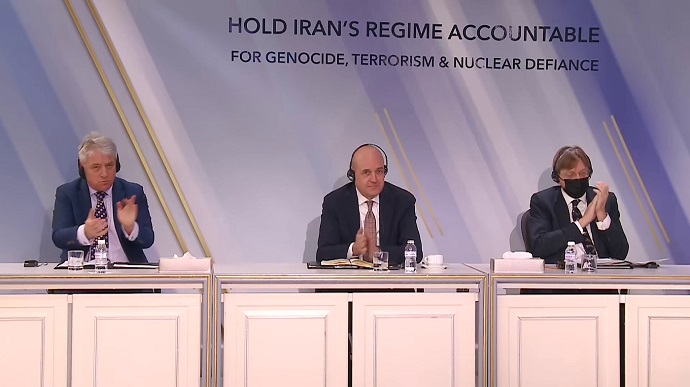The National Council of Resistance of Iran (NCRI) hosted a conference at its French headquarters on Monday, January 17, featuring remarks from four European lawmakers, several relatives of dissidents killed during the Iranian regime’s reign of terror in the 1980s. NCRI’s President-elect Maryam Rajavi was the keynote speaker.
Mrs. Rajavi underscored that the process of overthrowing the regime is currently underway, driven by “an organized network of Resistance Units” that are laying the groundwork for further uprisings like those which took place in December 2017, January 2018, and November 2019.
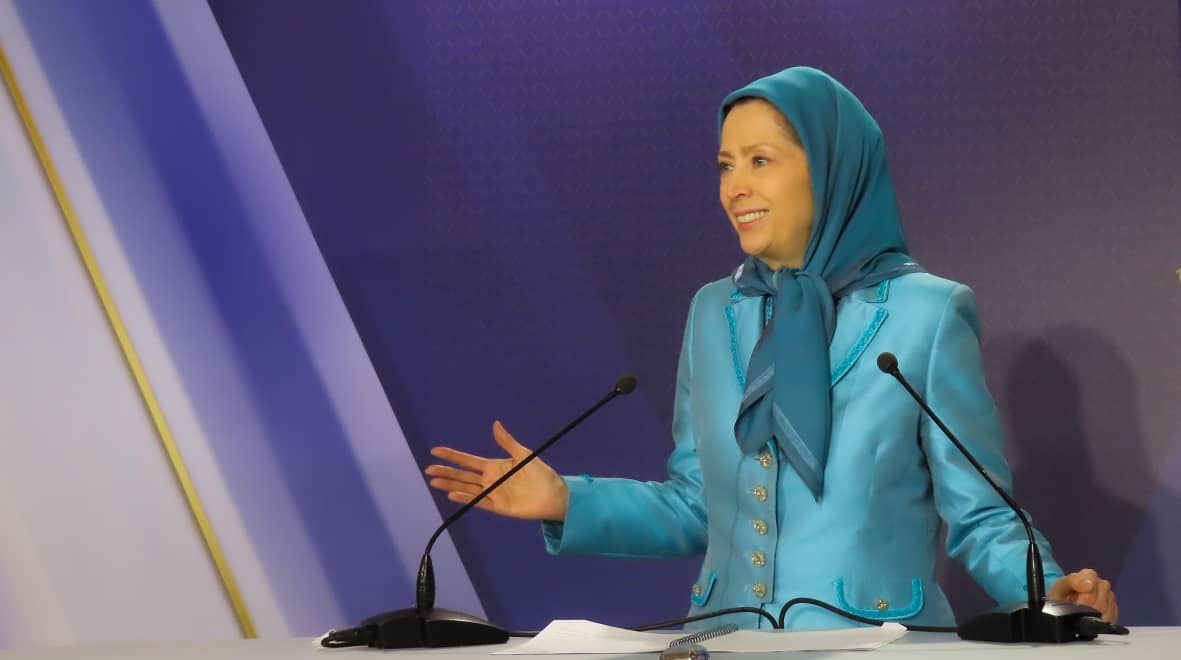
Those uprisings were violently suppressed, but not before compelling regime authorities to acknowledge that much of the unrest could be credited to the efforts of the NCRI’s main constituent group, the People’s Mojahedin Organization of Iran (PMOI/MEK). At the height of the January 2018 uprising, regime Supreme Leader Ali Khamenei said that the group had “planned for months” to facilitate protests in more than 100 localities and to popularize the anti-government slogans that defined the movement, including “death to the dictator.”
The recurrence of those slogans presumably fueled the regime’s especially fierce response to the latter uprising, which involved security forces opening fire on crowds of protesters all across the country. At least 1,500 people were killed during the November 2019 nationwide uprising, before the judiciary launched a campaign of systematic torture which lasted for several months and was detailed in a 2020 report by Amnesty International. The current regime President Ebrahim Raisi was the Judiciary Chief at the time.
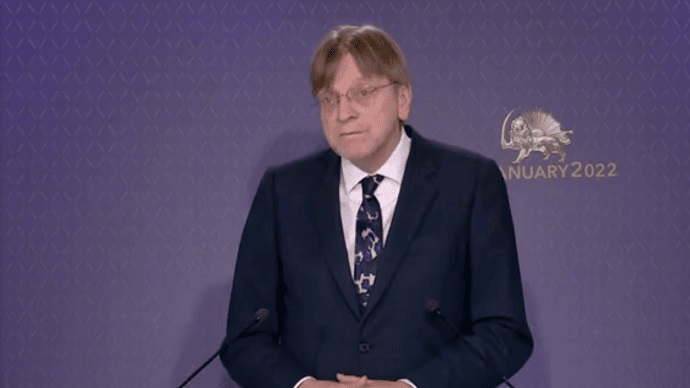
In Monday’s conference, former Belgian Prime Minister Guy Verhofstadt said Raisi had been installed as president at the time when “the impunity crisis in Iran reached its peak.” Other speakers also made some reference to that impunity and criticized the current Western policy toward the regime.
The speakers also highlighted concrete examples of the regime’s malign conduct at home and abroad. Comments about the significance of Raisi’s appointment stemmed from the widely-recognized fact of his role in what has been called Iran’s worst crime against humanity: the massacre of approximately 30,000 political prisoners during the summer of 1988. Verhofstadt stated that “the international community turned a blind eye to this crime against humanity, and this passivity continues to this day.” He urged the United Nations to launch a formal inquiry into the massacre and argued that any negotiation with put human rights front and center.
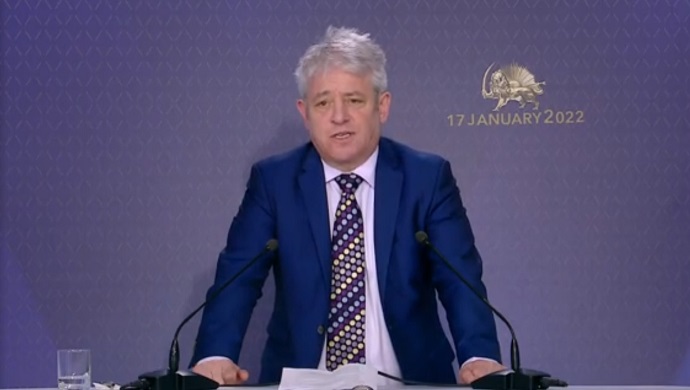
John Bercow, the former Speaker of the British House of Commons referred to the Iran nuclear talks currently underway in Vienna. “The conciliatory approach has yielded no results,” Bercow stressed.
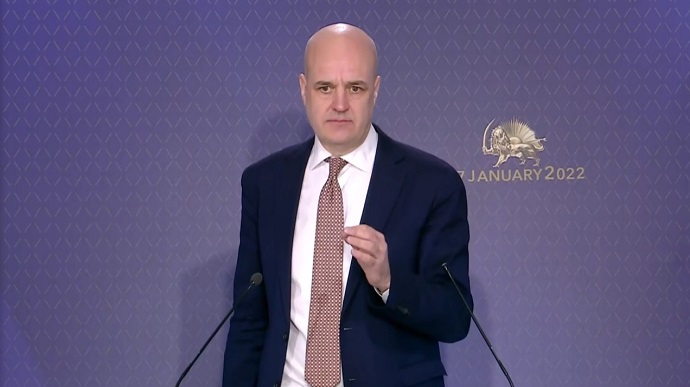
Former Swedish Prime Minister Fredrik Reinfeldt noted that that the nuclear program is contrary to the interests and desires of the Iranian people. “The people want freedom and food,” he said in his speech. “They don’t want nuclear weapons.”
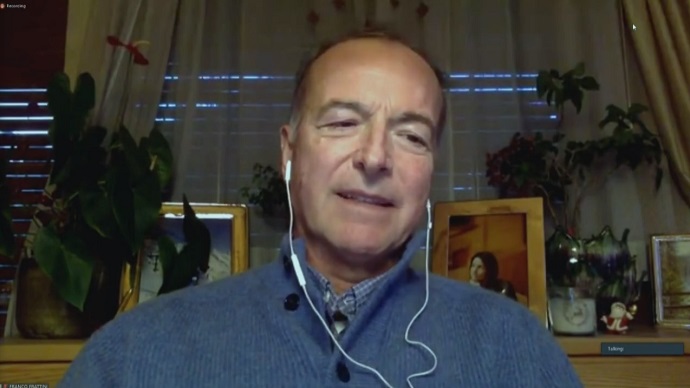
Fellow speaker Franco Frattini made much the same point and emphasized that the impact of sanctions on the nuclear program are felt by regime authorities and not by the Iranian people, who are largely deprived of basic needs by those authorities even under the best of circumstances.
Mrs. Rajavi credited the Resistance Units with “daily activities against repression,” and characterized popular protests in various segments of society as evidence of “the vast buildup of unresolved political, social, and economic problems and [Iranian] society’s urgent desire for fundamental change.”
The subtext of the conference, therefore, was that holding the regime accountable “for genocide, terrorism, and nuclear defiance” would remove Tehran’s shield of impunity and give the Iranian people and the organized Resistance movement a greater opportunity to stage even more expansive uprisings than those of 2017, 2018 and 2019, and to ultimately facilitate the regime’s overthrow.
Mrs. Rajavi’s remarks notably emphasized that the process of that overthrow will be pursued by the Iranian people themselves, perhaps with support from the peoples of the surrounding region. “Today, many have realized that the fight against [Islamic extremism], more than anything else, requires the Muslims themselves to play their role,” she said before adding that the NCRI could act as the nucleus of a democratic alternative that would define the future of Iran and the Muslim world.
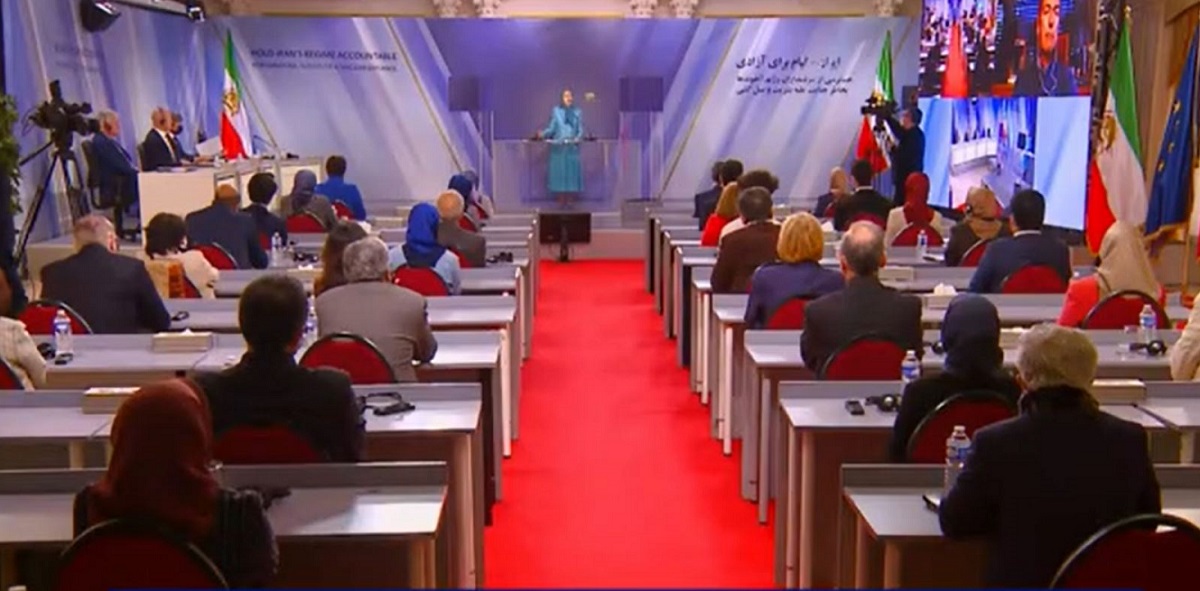
Mrs. Rajavi concluded her speech by outlining specific recommendations for Western policies toward Iran – policies that would safeguard Western interests while also clearing the way for change in Iran. These include reinstating six United Nations Security Council resolutions suspended after the signing of the JCPOA, placing Iranian human rights issues on the Security Council’s agenda, and pursuing charges at the International Criminal Court for Ebrahim Raisi and other perpetrators of the 1988 massacre, the 2019 crackdown on protesters, and other crimes against humanity.
Finally, Mrs. Rajavi stated that “the international community must recognize the Iranian people’s struggle to overthrow the regime and establish democracy and national sovereignty in their country.” She then added: “This is the Iranian people’s inalienable right.”
Watch the conference live today:
Hold Iran’s Regime Accountable For Genocide, Terrorism & Nuclear Defiance #EUTime4FirmIranPolicyhttps://t.co/bGnM9qYK2Y— NCRI-FAC (@iran_policy) January 17, 2022


